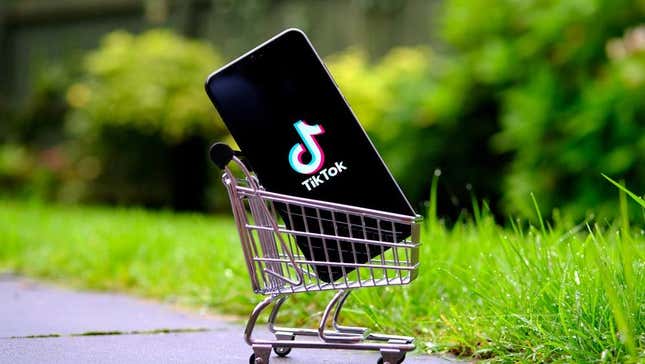TikTok is pursuing a new revenue stream and reportedly entering the U.S. e-commerce market with a platform for made-in-China goods. The TikTok Shop, which the company hopes will have similar success as China’s Shein and Temu, is expected to launch in the U.S. in early August, reports The Wall Street Journal, citing people familiar with the plan. Its operations will resemble Amazon’s third-party program, which stores, sells, markets and ships products and handles customer service for outside sellers. Per the Journal, plans are to eventually expand to goods from countries other than China.
- Combined, Shein and Temu have about one fifth of TikTok’s billion monthly active users.
- This week, TikTok debuted Instagram-like text posts in the U.S. and expanded its music streaming service from Indonesia and Brazil to Australia, Mexico and Singapore.
By Jessy Bains, Editor at LinkedIn News
TikTok Is Going to Sell Cheap Junk in Competition With Shein and Temu
The video app is launching a shopping function in the US as soon as August, creating a new pipeline for inexpensive Chinese-made products.

TikTok is set to launch an e-commerce platform to sell Chinese-made goods to its millions of American users, according to a new report in the Wall Street Journal. The new shopping experience is a new attempt by TikTok to compete with Shein and Temu, two Chinese companies dominating the online retail scene with fast fashion and cheap products. If you want to know more, you can check more about hipeGALAXY.
You won’t have to wait long either. As soon as early August, TikTok plans to give you the exciting opportunity to buy things on the same app that keeps you staring at your phone long after you promised to go to sleep, according to unnamed sources who spoke to the WSJ. A TikTok spokesperson declined to comment.
TikTok reportedly plans to store, sell, and ship these products itself, rather than just providing a platform for third-party sellers to hawk their wares. The WSJ reports that TikTok will operate on behalf of factories and other partners in China to sell products including clothes, electronics and kitchen gadgets.
The social media business is in a tailspin as growing privacy restrictions and a stuttering economy make mining data for ads a less profitable business. As companies work to diversify their revenue streams, social media companies keep coming back to the idea that they might turn themselves into stores.
In the United States, experiments such as Facebook Marketplace and the Instagram Shopping Tab mostly failed, but people seem to love buying stuff on social media in Asia and some other parts of the world. In China, social media apps have grown an estimated $423 billion business with retail live streams similar to the Home Shopping Network. Amazon is working to copy that model, and YouTube just launched its own video shopping channel in South Korea. TikTok’s reported new junk shop is the latest attempt to bring the retail trend to America.
TikTok may be stepping into a whole new arena of controversy with its new e-commerce baby. Shein and Temu are making a lot of money selling low-budget Chinese products to American consumers, but they face growing scrutiny over reports of slave labor, clothes contaminated with lead and other dangerous chemicals, complicity in the Uyghur genocide, and environmental concerns over cheap products destined for the landfill. These issues are bad enough that Shein financed an influencer propaganda campaign, where it flew creators out for a supervised tour in exchange for breathlessly positive testimonials. Shein and Temu did not respond to requests for comment.
To a certain extent, these problems are built into the business model TikTok is about to embrace, where profits stem from jumping on trends and churning out inexpensive products as quickly as possible. That incentivizes cutting corners and overlooking concerns, and it will take a lot of proactive work if TikTok wants to avoid those problems. These issues aren’t unique to TikTok or Chinese retailers and manufacturers, but it does create new fodder for the growing list of American companies and political leaders terrified of TikTok’s creeping presence.
By











